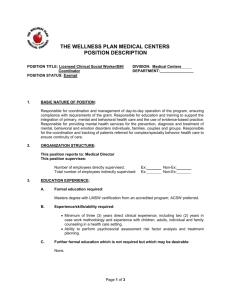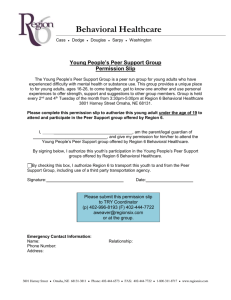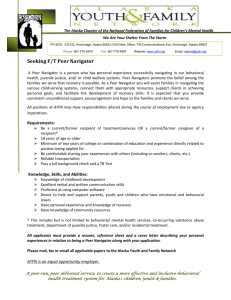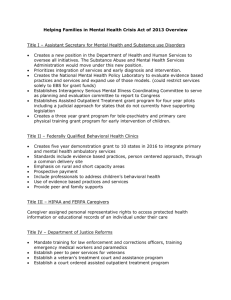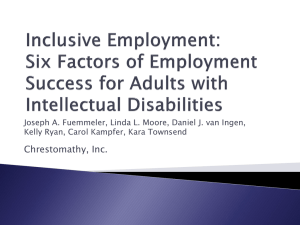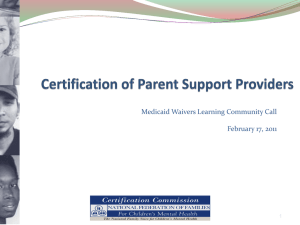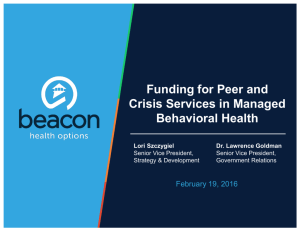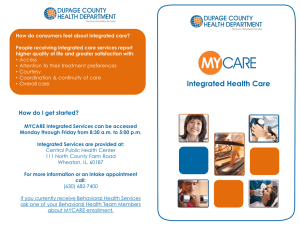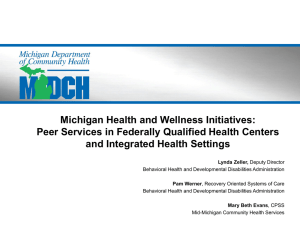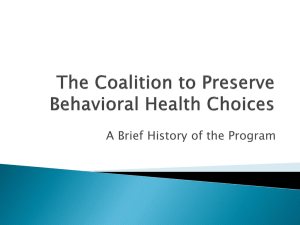Document
advertisement
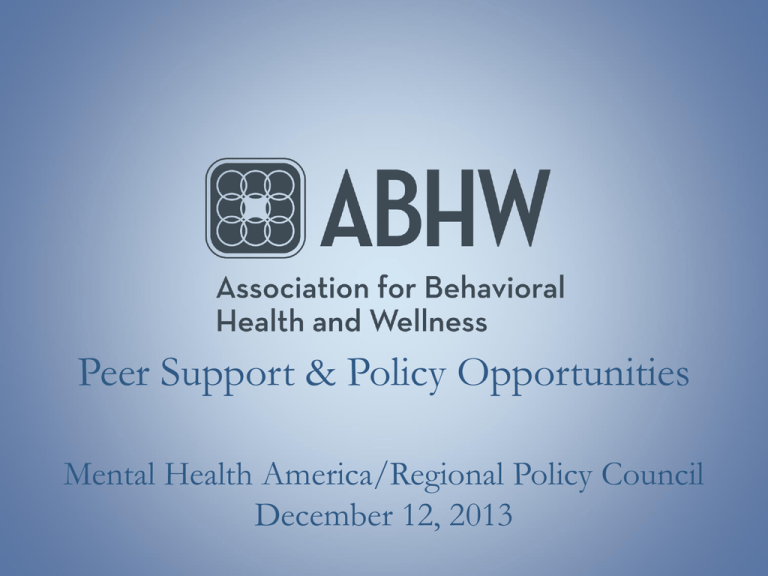
Peer Support & Policy Opportunities Mental Health America/Regional Policy Council December 12, 2013 ABHW • The Association for Behavioral Health and Wellness (ABHW) is the national voice for specialty behavioral health and wellness companies. ABHW member companies provide specialty services to treat mental health, substance use and other behaviors that impact health. ABHW supports effective federal, state and accrediting organization policies that ensure specialty behavioral health organizations (BHOs) can continue to increase quality, manage costs and promote wellness for the nearly 125 million people served by our members. • • • • • • • • • • ABHW Members Aetna Behavioral Health Beacon Health Strategies Cenpatico Cigna Healthfirst MHN New Directions Behavioral Health OptumHealth Behavioral Solutions PerformCare/CBHNP ValueOptions Agenda • Peer Support Services. • Issues on ABHW’s radar screen/issues for consideration. ABHW Members and Peer Support Services • Specialty behavioral health organizations increasingly utilize Peer Support Services and view them as a valuable component of a comprehensive approach to wellness. • Some ABHW member companies have greater utilization of and experience with PSS services than others, but across the board, specialty BHOs are eager to offer PSS, where appropriate and feasible, to the members they serve. Peer Support Services (con’t.) • Challenges that BHOs face in providing Peer Support Services: – – – – – Reimbursement; Internal billing systems; Lack of national credentialing standard; Need for more qualified peer providers; and Acceptance. New Populations • Medicaid Expansion (up to 21.3M individuals) – As many as 2.7 million people with mental illness who are currently uninsured could be added to the Medicaid rolls (SAMHSA). – A full Medicaid expansion would provide health insurance coverage to 17 million people who were previously uninsured. About 40 percent of this group – or 6.6 million individuals – with serious or moderate mental illnesses who are currently uninsured would obtain health insurance through the Medicaid expansion between 2014 and 2019. New Populations (con’t.) • Health Insurance Exchange – 8 percent report that they are in fair or poor mental health (Kaiser Family Foundation March 2011). – What does the behavioral health benefit look like in each state? – Is it adequate? – Opportunity to revisit. New Populations (con’t.) • Criminal Justice – Prior to coverage expansion under the ACA, an estimated 10 percent of the jail-involved population had health insurance when in the community. – Incarcerated individuals are eligible to be enrolled in an Exchange if they are still pending disposition of charges while in jail. – In 2011, individuals with mental illness made up 33 percent of the average daily jail population (Council of State Governments Justice Center). Workforce • Impact of ACA and MHPAEA. • SAMHSA and HRSA are working together. • Federal Government issued $100 million to bolster the country's mental health programs. • More needs to be done. – New Partnerships. – Telemedicine. Disruptive Innovation • • • • New payment models. New delivery models. Focus on outcomes over process. New partnerships. Parity • ABHW supports. • Working to understand and implement the final regulation. • Prefer uniform standard for enforcement.
